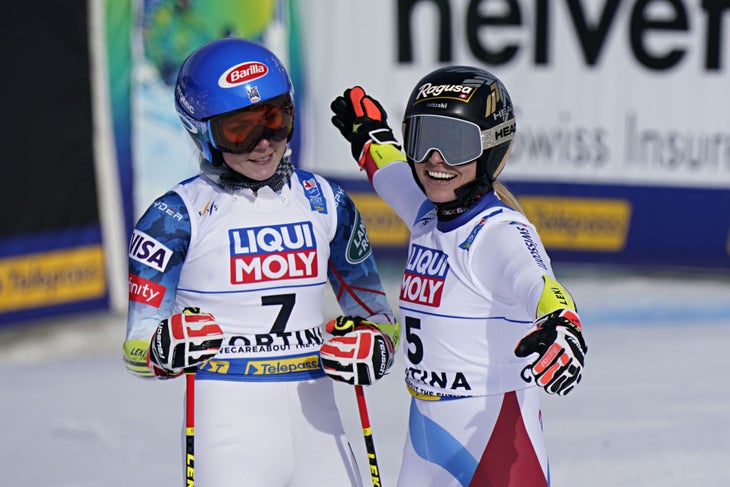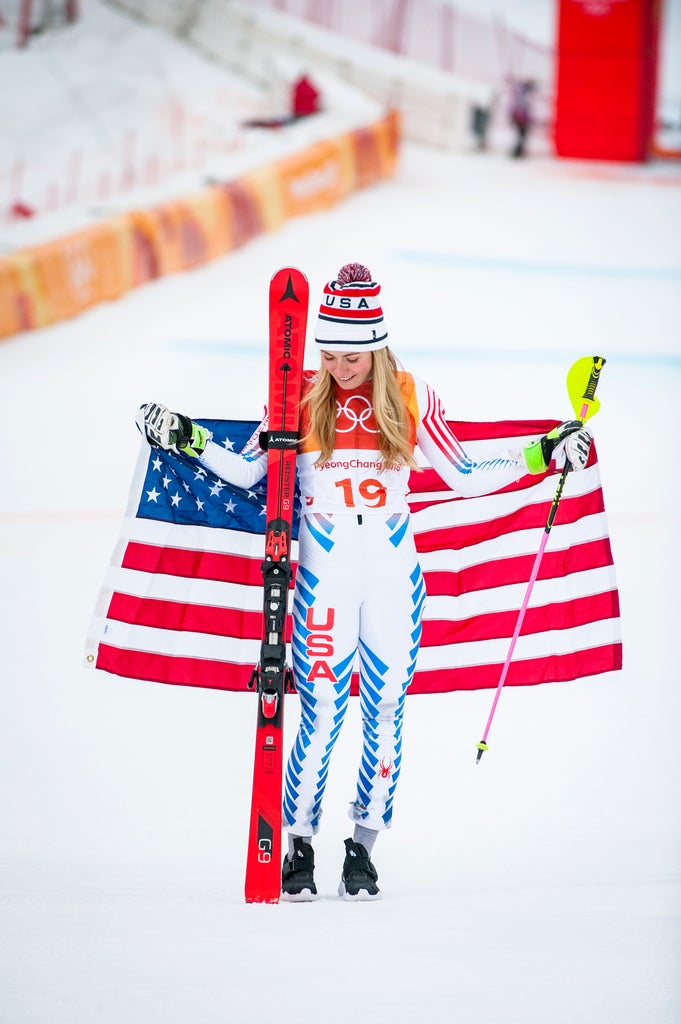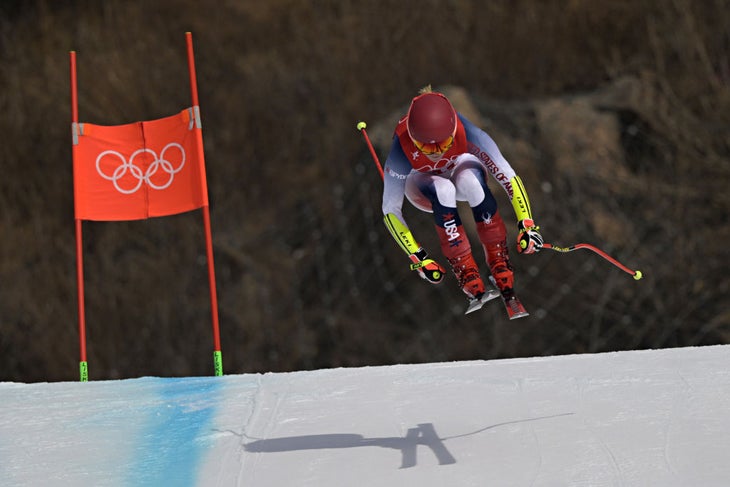Products You May Like
Receive $50 off an eligible $100 purchase at the Outside Shop, where you’ll find gear for all your adventures outdoors.
Sign up for Outside+ today.
Friday’s Olympic super-G was a revelatory moment for Switzerland’s Lara Gut-Behrami and American superstar Mikaela Shiffrin. The former earned super-G gold, a first for her and for her country. The latter finished ninth and completed her first race thus far in the Beijing Winter Games. One woman experienced an Olympic dream realized, fueled by a change in perspective. The other found a trust reestablished, also driven by a shift in perspective.
When Shiffrin skied out of her two best events early in the Olympics, she shocked herself and the world. The giant slalom Olympic gold medalist and the winningest slalom racer in alpine skiing history felt that shock to her core, so much so that she began to doubt her innate ability to ski well. A foundational element of her personality, the thing that has gotten her through the good times and the bad, cracked in an instant. Betrayed, she said, was how she felt.
Related: The commentary on Mikaela Shiffrin’s Olympic performance has turned toxic
Gut-Behrami knows that game. She’s played it, too, for the past 15 years of her career as a professional ski racer.
“It’s harder to win two races than one,” Gut-Behrami explained in a post-race press conference. “And it’s harder to win 10 races than three, but when you win four races you’re expected to win the next 10, and it doesn’t go that way. I wish it did, but it doesn’t.”
Both Gut-Behrami and Shiffrin have shared experiences of growing up in the spotlight. They both started their professional skiing careers in their teens, and both immediately felt the pressure to perform.

“Growing up with the cameras on, I always did my best, but sometimes I was just lost,” reflected Gut-Behrami. “I had no idea what was best for me, or what I needed. If I was doing something for me, or if I was doing something I was told to, that everyone expected.”
She struggled with the pressure to succeed year in and year out until a massive crash and injury forced her to slow down. She got married, started building a life outside of the sport, and reevaluated her relationship with skiing.
Now 30, Gut-Behrami has competed in three Olympics: Sochi in 2014, PyeongChang in 2018, and now Beijing. Super-G is her speciality event, where she has been crowned overall champion twice on the World Cup Tour. But each year prior to 2022, the super-G specialist finished fourth, just off the podium.
Shiffrin, on the other hand, has a history of skiing strong in her favored disciplines at the Olympics. She won her first gold in the slalom in the 2014 Sochi Games at the age of 18 and another in giant slalom at the 2018 Games in PyeongChang when she was 22.
Both athletes have storied careers highlighted by multiple World Cup wins, World Championship medals, and crystal globes—the highest honor in the world of alpine ski racing, a reflection of consistent performance and domination across their sport throughout the entirety of the season. But one had an Olympic gold, and the other did not.

So when Gut-Behrami was fielding questions at the post-race press conference in Beijing, of course she was asked if this win was the most emotional victory of her career. It’s the Olympics, an event so cherished by the global community that for these athletes, it must be.
But it’s not, not to Gut-Behrami at least.
“I’m doing this for myself because I love skiing, and that’s the biggest victory of my career,” she said. “I ski because I like to ski. It’s not my entire life. I’m a skier and that’s it. I’m a person, I love many things. When you win gold, it’s amazing, but you cannot build your life around a gold medal.”
Fast skiing and hard work earned her Olympic gold, but the love of the sport got her there. In her own way, Shiffrin is coming to terms with her relationship with skiing too. Fast skiing will earn her accolades, but her love for the sport will keep her going.

“I feel more positive, and a little bit of relief after skiing the super-G, to know that it’s not so difficult. Good skiing is good skiing,” said Shiffrin. “I think today I proved to myself that I can still trust my instincts, and that’s really, really huge.”
As Shiffrin faces scrutiny on the global stage, fellow Olympians, family, friends, and fans, have come out of the woodwork to remind her that her life, career, and impact are much bigger than Olympic medals.
“I would never have expected severely underperforming in an Olympics. [But then] I would have never felt that humans can be so kind,” she added. “It’s the most surprising thing of my Olympic experience, how kind people have been in the face of my failure. It is failure, and I’m okay to say that. I’m okay with that and I’m sorry for it, but I was also trying, and I’m proud of that.”
One in ninth, one in first, both skiing for the love of skiing. At the end of the day, the Olympics is just another race. The skiing—that’s the good stuff.
